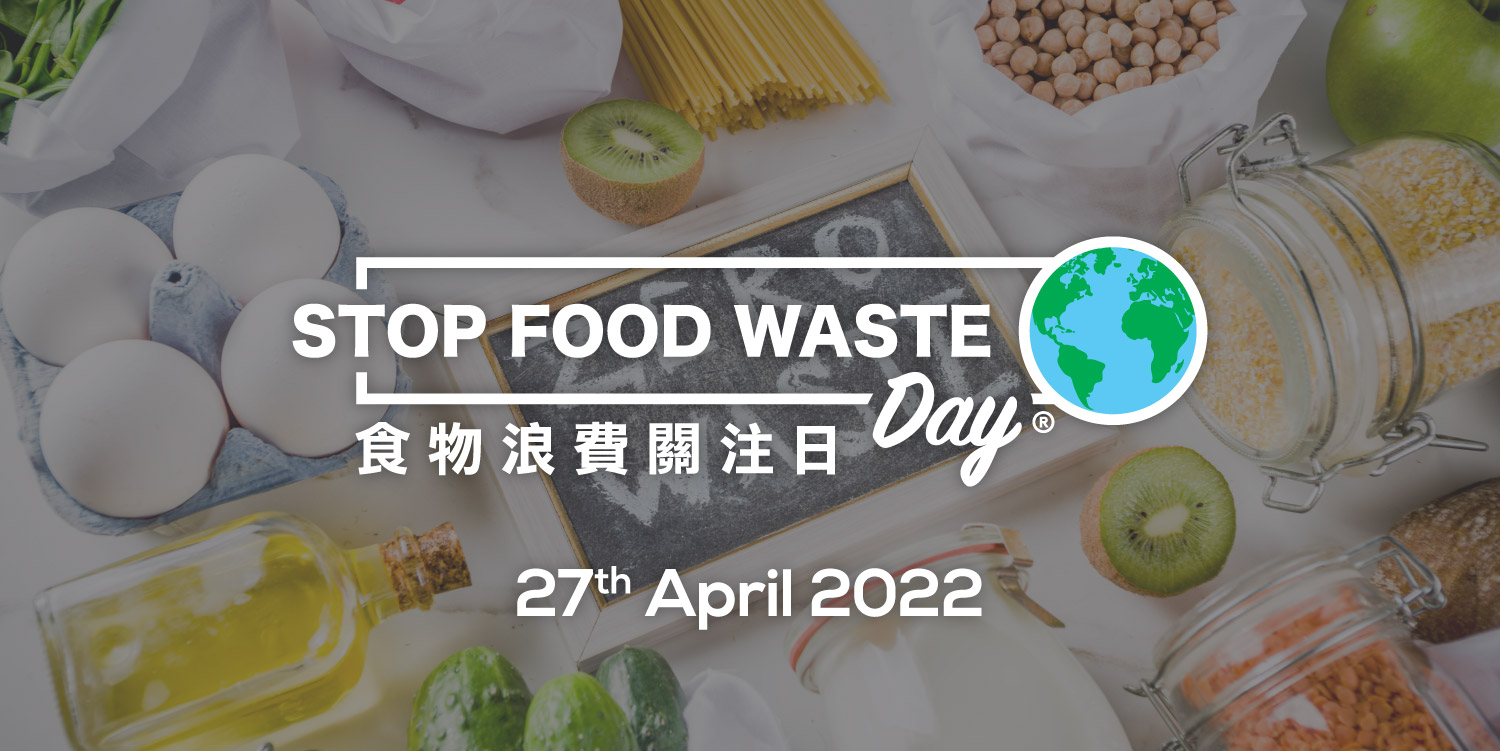Stop Food Waste Day (27 April 2022)

Did you know that more than 3,350 tonnes of food waste goes to our landfills each day, which makes up one third of the total solid waste produced locally? While the commercial and industrial sector (e.g. restaurants, hotels, wet markets, food production and processing industries, etc.) contributes to about 1,000 tonnes of these food waste, the rest is mostly dumped from households.
As a global leader in foodservice, Compass Group is committed to halve our food waste by the year of 2030 as aligned to the United Nation’s Sustainable Development goal. The work stretches from our own kitchens to the partnership with suppliers as well as the education to our clients and the general public.
Hence, on this special Stop Food Waste Day, we have a few tips to help you reduce food waste at home!
Shop Smart
- Buy only what you need. Before heading to the store, check what you already have on hand, especially items that are expiring soon. Avoid buying more of these before you actually finish them.
- Make a grocery list of items that you are either actually running short of, or, will use in the short future.
- Stick to your list! It can be very tempting to add the discounted items to your cart as you move along the line. If you have to bring them home, take it as a replacement of a similar item on list, e.g. substituting a bag of apple with oranges on sale.
- Adopt the ugly produce! Fruits and vegetables may come in odd shapes and are often left to dispose. Do not judge them by the looks! They are as tasty and nutritious as the regular ones.
Store Smart
- Practice “First In, First Out”. Arrange your inventory so that the items purchased the earliest would be accessed and used first.
- Practice portion packing. Ziploc bags, airtight containers, mason jars, freezer trays are all great tools to help you separate bulk items into individual serving sizes so that you do not have to defrost a gigantic asteroid of minced beef just to make spaghetti bolognaise for two.
- Store produces in the right place.
- Root and tuber vegetables (e.g. onions, potatoes, yams and carrots) do not belong in the fridge. Keep them in a dry, damp area without direct sunlight and they will last up to two months!
- Before putting leafy vegetables in the fridge, make sure to pat them dry and avoid cutting them open in advance. Minimizing contact with moisture and air is the key to prolonging shelf life.
- Fruits such as apples, pears and peaches release ethylene which speeds up the ripening of other produce. Make sure to isolate these troublemakers using paper bags or airtight containers.
Cook Smart
- Eat the skin. The peel of many fruits and vegetables are incredibly rich in vitamins, minerals, dietary fiber and antioxidants. Put these goodies in your stomach instead of the bin!
- Make your own stock. Vegetable scrapings and bones from your Sunday roast are perfect ingredients for a homemade stock. Not only do you get to make use of all edible parts of what you purchased, it is also a great way to avoid the extra sugar, sodium, fats and food additives found in store bought stocks!
- Have a few “clear-the-fridge” recipes in your pocket. As much as we try, there will always be some mysterious quarter sticks of a carrot or two sad little slices of cheese crying for rescue before it is too late. Next time when it happens, throw them all in an omelette or make a curry out of it!

Reference
- Environmental Protection Department, HK Gov. Waste: Problems & Solutions. Available at: https://www.epd.gov.hk/epd/english/environmentinhk/waste/prob_solutions/food_waste_challenge.html#:~:text=Current%20Status,largest%20MSW%20category%20being%20landfilled. Accessed on 28Feb2022.
- Stop Food Waste Day. About. Available at: https://www.stopfoodwasteday.com/en/about.html. Accessed on 28Feb2022.

